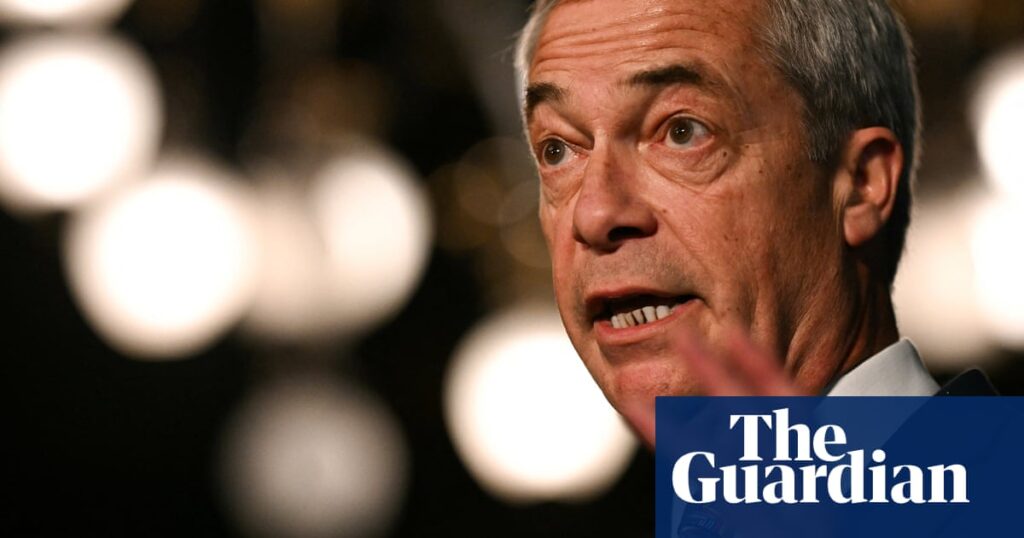Nigel Farage’s Views on Gender Roles and Workplace Dynamics
Nigel Farage has expressed the opinion that men are more willing to sacrifice their family lives for professional success compared to women, claiming that modern society is “feminizing” young men.
Gender Choices in the Workplace
During a discussion with journalists in Westminster, Farage shared his perspective on gender balance in the workplace, stating that women often make “different life choices” related to their careers. He suggested that men are drawn to Reform because they exhibit more impulsive behavior than women.
Meritocracy and Gender Balance
When questioned about whether the male-dominated landscape in top business positions is purely a matter of merit, Farage remarked, “The reality is that many women make different choices than men. In business, men are often willing to sacrifice family time for career advancement, while fewer women are prepared to do so. However, those women who do are likely to have a greater chance of reaching senior positions than their male counterparts.”
Reform Party Demographics
Reform’s leadership is predominantly male, with Farage at the helm, alongside Richard Tice, Nick Candy, and Zia Yusuf, in addition to several male MPs. When pressed about the lack of women in leadership roles within his party, Farage affirmed his support for women and mentioned several female candidates.
Cultural Influences and Men’s Issues
Farage’s comments resonate with sentiments found in the “manosphere,” where there are frequently discussions about the perceived feminization of boys today. Although he distanced himself from endorsing controversial figures like Andrew Tate, he acknowledged the underlying reasons for Tate’s significant following among young men, suggesting that many feel stifled by societal expectations.
Criticism from Politicians
In response to Farage’s remarks, Labour MP Natalie Fleet criticized him, stating, “Farage appears to be stuck in the 1970s and clearly misunderstands the sacrifices that women make. How can his party effectively represent them?”
Farage’s Controversies and Views
In a broader Q&A session, Farage discussed a previous disagreement with Elon Musk, noting that Musk had pressured him to support far-right activist Tommy Robinson. “You can’t bully me,” he stated, insisting that he stands firm on his principles.
He also commented on the speculation regarding a $100 million donation from Musk, indicating that it was exaggerated, but affirmed that they are on “perfectly reasonable terms” via text. Furthermore, he dismissed the idea of forming an alliance with the Conservative Party, criticizing its leadership and calling many MPs “stuffy” and out of touch.
Policy Stances and Views on Gender
Farage attributed the closure of Scunthorpe’s steel plant to net zero policies rather than potential tariffs from Trump and asserted that the Conservative Party missed an opportunity for a trade deal due to Brexit delays.
Reaffirming Masculinity
On the topic of masculinity, Farage argued against the notion that boys should suppress traditionally masculine behavior at events like football tournaments, stating, “We shouldn’t discourage boys from being boys. Some believe we are trying to feminize men, which may explain the appeal of figures like Andrew Tate. I recognize that many young men feel restrained in their self-expression.”
Party Support and Gender Representation
Discussing Reform’s support, which notably surged among young men in the last election, Farage remarked on the impulsive nature of men compared to the more cautious approach women often take. However, he also expressed a desire for his party to appoint more women to senior roles moving forward.
Media Portrayals and Personal Reflections
Farage humorously addressed his public image, recounting exaggerated claims about his lifestyle, including accusations of heavy drinking and gambling. He noted that while some of these assertions may have been accurate in the past, they matter less to him as he ages.


